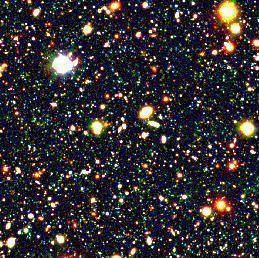This pages is primarily intended for existing students. It consists of modules available to Natural Sciences students, Joint-Honours regulations and general advice (which includes links to Departmental advice.)
The following lists the module code and the title of each module by the level of each module - clicking on the link will take you to further details listed in the Faculty Handbook.
The last digit of the module code indicates whether the module is single, double or triple. The level indicates the year in which modules are normally taken, but it is often the case that students take modules from the adjacent level beneath the year of study. Visit the Subjects page for the general overarching rules and structure.
Please note that the modules on offer and the requirements for progression can change from year to year and that the only combinations of modules that are guaranteed to fit in the timetable are those splits between the two departments on an approved Joint Honours route (MSci and BSc).
Within Natural Sciences, Physics has BSc Joint-Honours programmes with: Biology; Chemistry; Computer Science; Mathematics; Philosophy. There are also the following MSci Joint-Honours programmes with: Biology; Chemistry; Mathematics.
In BSc students' final year, they are required to take no less than 20 credits and no more than 60 credits of Capstone Modules. MSci student students are not required to take a capstone module, but rather take a Dissertation/Project in Year 4. Dissertation/Project/Capstone modules are denoted with
GPhysics modules available to Natural Sciences students
Level 1 modules
Introduction To Astronomy (PHYS1081)
Discovery Skills In Physics (PHYS1101)
Foundations Of Physics 1 (PHYS1122)
Maths Toolkit For Scientists (PHYS1141)
Level 2 modules
Foundations Of Physics 2A (PHYS2581)
Foundations Of Physics 2B (PHYS2591)
Mathematical Methods In Physics (PHYS2611)
Stars And Galaxies (PHYS2621)
Theoretical Physics 2 (PHYS2631)
Laboratory Skills And Electronics (PHYS2641)
Physics In Society (PHYS2651)
Level 3 modules
Science EnterpriseG (NSCI3001)
Computing ProjectG (PHYS3561)
Team ProjectG (PHYS3581)
Mathematics Workshop (PHYS3591)
Advanced LaboratoryG (PHYS3601)
Physics Into SchoolsG (PHYS3611)
Foundations Of Physics 3A (PHYS3621)
Foundations Of Physics 3B (PHYS3631)
Planets And Cosmology 3 (PHYS3651)
Theoretical Physics 3 (PHYS3661)
Foundations Of Physics 3C (PHYS3671)
Laboratory Skills And Electronics 3G (PHYS3681)
Physics In Society 3G (PHYS3691)
Bsc ProjectG (PHYS3701)
Condensed Matter Physics 3 (PHYS3711)
Modern Atomic And Optical Physics 3 (PHYS3721)
Level 4 modules
Atoms, Lasers And Qubits (PHYS4121)
Advanced Theoretical Physics (PHYS4141)
Advanced Condensed Matter Physics (PHYS4151)
Advanced Astrophysics (PHYS4161)
Particle Theory (PHYS4181)
Theoretical Astrophysics (PHYS4201)
ProjectG (PHYS4213)
Planets And Cosmology 4 (PHYS4231)
Theoretical Physics 4 (PHYS4241)
Foundations Of Physics 4B (PHYS4261)
Condensed Matter Physics 4 (PHYS4271)
Modern Atomic And Optical Physics 4 (PHYS4281)
Requirements for Joint Honours (BSc and MSci Programmes)
Please note that these requirements are just for the B.Sc. degrees and the M.Sci. in Natural Sciences, requirements for the JH M.Sci. degrees involving Physics are detailed
elsewhere.There are 2 routes within Physics: Physics without Maths route and Physics with Maths route.
Physics with Maths
Physics without Maths
Designed to be timetabled with Biology, Computer Science, Chemistry and Philosophy.
Year 1
| 80 credits: Foundations Of Physics 1 (PHYS1122), ((Calculus I (MATH1061) and Linear Algebra I (MATH1071)) or (Single Mathematics A (MATH1561) and Single Mathematics B (MATH1571))) |
Year 2
| 60 credits: Foundations Of Physics 2A (PHYS2581), Mathematical Methods In Physics (PHYS2611), Discovery Skills In Physics (PHYS1101) |
Year 3
| 60 credits: Foundations Of Physics 2B (PHYS2591), Foundations Of Physics 3A (PHYS3621), Laboratory Skills And Electronics 3 (PHYS3681) |
Advice for progression and other aspects
Department advice:
Additional advice directly from PhysicsNatural Sciences advice
Year 1
| Discovery Skills In Physics (PHYS1101) must be taken either Year 1 or Year 2 to leave open the option of taking a Project/Capstone module in Physics.
See the last few paragraphs of the BSc and MSci degree regulations to find out about degree recognition.
Progression from: PHYS1101. |
Year 2
| Discovery Skills In Physics (PHYS1101) must be taken either Year 1 or Year 2 to leave open the option of taking a Project/Capstone module in Physics.
Mathematics-Physics students are advised to prioritise Theoretical Physics 2 (PHYS2631) over Mathematical Physics II (MATH2071), as doing this provides more choice on the pathway.
See the last few paragraphs of the BSc and MSci degree regulations to find out about degree recognition.
Progression from: MATH2071; PHYS1101; PHYS2631. |
Year 3
| Where students have choice, they are advised to take Foundation of Physics 3B as it contains important core material on Statistical Physics and a big chunk of Condensed Matter Physics.
If you want to take Computing Project (PHYS3561) but did not take Laboratory Skills And Electronics (PHYS2641) in Year 2, then talk to the Director. It might be possible (if you achieve at least a 60% Year 2 average) to take Computing Project (PHYS3561) and Laboratory Skills And Electronics 3 (PHYS3681) where you will be a bit behind in the first term and will need to speed up in the second term. This option is not guaranteed an under annual review.
See the last few paragraphs of the BSc and MSci degree regulations to find out about degree recognition.
Progression from: PHYS3561; PHYS2641; PHYS3681. |
For more information about the Natural Sciences degree programme, please contact:
Prof James Blowey
Deputy Head of Faculty
Faculty of Science Office
Level 3 Chemistry Building
Durham University
DH1 3LE
UK
Email: Natural Sciences Director
WWW: Natural Sciences home page
The Natural Sciences web pages are maintained by James Blowey



